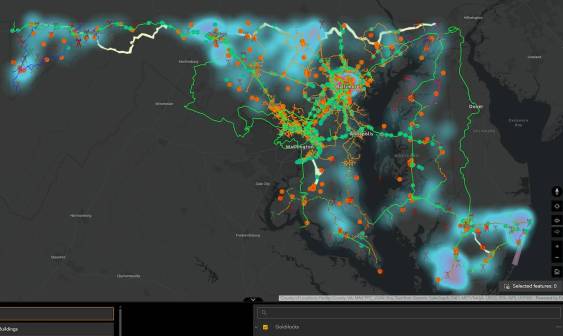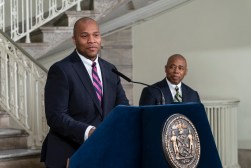NYC official resigns from ‘unproductive’ FCC broadband committee

A second official has resigned his position from the FCC’s Broadband Deployment Advisory Committee (BDAC), citing concern that the group’s recommendations are being skewed to favor private industry over the public’s interests.
NYC Chief Technology Officer Miguel Gamiño announced his resignation from the advisory body established by FCC Chairman Ajit Pai in a letter to Pai on Wednesday.
The move is essentially a statement: Gamiño will soon leave city government for a new venture, and the committee itself is expected to conclude its last scheduled meeting in April.
Gamiño wrote that he is concerned the draft policy resulting from the group’s recommendations “could lead to municipalities entering into agreements with wireless providers that are counter to the interests of their constituents.”
Gamiño’s letter also said that no effort was made to put another local government representative in the seat of the group’s former vice chair, San Jose Mayor Sam Liccardo, who resigned from BDAC in January with similar complaints.
BDAC was announced in January 2017 as a 30-member advisory committee that would provide the FCC policy recommendations to encourage broadband deployment. One of the first tasks was to draft a “model code” for municipalities that would include best practices for local franchising, zoning, permitting, and right-of-way regulations. The hope was that such a code would give cities a policy blueprint that could be adopted to encourage internet service providers to build in their areas.
Gamiño says that despite his repeated complaints that the policy being formed would be unfavorable to localities, the group has drafted a “pre-packaged one-size-fits-all proposal that industry lobbyists have pushed nationwide rather than working in a cooperative fashion to find creative solutions to dynamic local issues.”
Gamiño also says the lack of representation of local government in the group, which is mostly comprised of large telecommunications executives or their supporters, has been a central factor in his and Liccardo’s recommendations going unheeded.
“Therefore,” Gamiño writes, “we are not able to recommend that a municipality adopt the code without significant legal and financial analysis or for it to be referenced as a ‘model’ for legislatures, the FCC, or other regulatory bodies.”
Gamiño told StateScoop that he is resigning because the body has proven to be unproductive in accomplishing the task that it was supposed to accomplish.
“How do you expect to productively build a code … for municipalities that has almost no municipal representation? The makeup of the body itself is the most obvious piece of evidence,” Gamiño said.
Gamiño said he joined in good faith and always worked in hope of producing something that would be useful, but can no longer lend his name to the project.
“With everything else that’s been going on with the FCC, I would say we’re not surprised, but very disappointed,” he said.
What has been productive, Gamiño said, is partnering directly with other cities, which NYC has done through its open internet pledge, a commitment by U.S. city and county leaders not to do business with companies that don’t support net neutrality.
The FCC did not respond to a request for comment.






